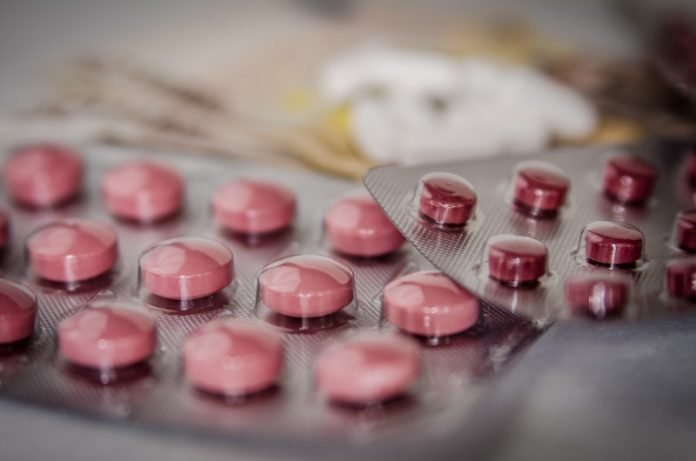
When temperatures soar, we know we are at risk for heatstroke and dehydration. However, not many people know that high temperatures can impact their medications too.
“Each medication has an ideal storage temperature. If they are not stored correctly, then medications may lose effectiveness,” said Merlyn Joseph, PharmD, clinical assistant professor of pharmacy practice at the Texas A&M Irma Lerma Rangel College of Pharmacy.
“Patients should pay close attention to their medications, especially in the summer heat.”
Avoid keeping medication in hot or humid places
Most medications can break down in hot and humid conditions, which cause them to lose effectiveness.
“Best practice is to keep your medications in a cool, dry place. Avoid keeping medications in the bathroom and kitchen,” Joseph said.
Carry what medication you need for your trip, plus a few extra dosages
“If you keep a first-aid kit in your car with emergency inhalers or other medications, then you need to be aware how quickly they can expire when exposed to high temperatures on a regular basis,” Joseph said.
“It is better to carry medications you need in an emergency on your person instead of keeping them in the glove compartment.”
If you are carrying your medications in summer, take what you need for that day or trip. It may be good to pack medications for a few extra days, in case of travel delays.
This practice limits the medications’ exposure to temperatures outside your home.
Similarly, if you know you are going to be in really hot weather with medications that need to stay cool, like insulin, then take a cooler with you.
Pack your medications into a carry-on bag
If you are flying on a plane, the same rule applies: bring enough medications for your trip and a few extra days, in case of flight delays.
Another important thing to remember when you travel with medications is to pack them in a carry-on bag.
The airline may lose your checked bags, and replacing medications when you are on vacation can prove to be difficult.
Plus, you cannot control how long your checked bags sit outside waiting to get loaded onto the plane. If you carry your medications with you at all times, then you can have better control over their exposure to the heat.
“Another traveling trick is to take the original pill bottle with you,” Joseph explained. “If any questions come up about your medications, then you can prove you are supposed to have those pills.”
Pay attention to your medications’ specific rules
Most medications have to be stored at room temperature in a dry place. However, sometimes medications have special rules.
Especially if you are starting a new medication, it is important to ask the pharmacist about different temperature requirements and expiration dates.
Nitroglycerin. In addition to keeping this medication away from heat, patients need to keep it out of the sunlight.
For this reason, pharmacists give nitroglycerin to patients in an amber-colored bottle to decrease the amount of light that can reach it.
Keep the medication in the original bottle. If nitroglycerin is exposed to light or leaves the protection of the amber-colored bottle, the medicine declines rapidly and becomes ineffective.
Insulin and other injections. Patients need to refrigerate insulin in order to maintain its efficacy to the expiration date. As a result, many people store their insulin in the fridge until they are ready to use it.
After you start using an insulin vial or syringe, they are typically kept at room temperature. Document the date that it was first used, as the new expiration date is based off this date.
Insulin breaks down in the heat, so when patients need to take the insulin out of the house, it’s a good idea to pack a small, easy-to-transport cooler to keep the medication cool
Inhalers and contraceptives. Patients often overlook their inhalers when they think of their medications.
Joseph says it is important to keep track of when you first used each inhaler to determine its expiration date.
Similarly, patients need to keep track of how many dosages are left. Make sure you order your replacement before all the doses run out.
Additionally, hormonal vaginal rings or barrier methods of birth control like condoms can become less effective when exposed to extreme temperatures.
Liquid antibiotics and other solutions. Patients may need to refrigerate any liquid antibiotics, otherwise, they lose effectiveness.
“While many liquid solutions need to remain cold, others do well at room temperature,” Joseph said. “If you are unsure, ask your pharmacist.”
Be aware of expiration dates for medications in summer
“A common mistake people make is they assume their medications do not expire or they forget when they first opened the bottle,” Joseph said.
“Medications do expire. Furthermore, if exposed to heat, medications expire even quicker than the listed date on the bottle.”
Expiration dates of multi-use inhalers or vials are commonly dependent on the date they were first opened and used. Talk with your pharmacist if you have specific questions on the expiration dates.
Bonus tip: Get expert advice about medications in summer
If you believe you accidentally exposed your medications to extreme temperatures, speak with your pharmacist. They can advise you on the best course of action.
Similarly, if you regularly take your medications outside for extended periods of time, just take the medications you need to take for that day.
In addition, some medications may need replacement sooner than the expiration date on the bottle.
“The summer heat may make it harder to keep heat-sensitive medications in a cool place,” Joseph said.
“Stay aware of where you keep your medications in summer and keep an eye on those expiration dates. When in doubt, ask your pharmacist.”
Written by Mary Leigh Meyer.



